 Shan Welham (aka QueenNahs) is Queensland‘s newest FasterLouder.com.au (FL) state editor. FL is a popular Australian rock music portal whose coverage is divided into six key Australian city centres. Shan assumed the role in January 2009 and now guides the creative contributions of over 40 keen writers and photographers through the south-east corner of Queensland.
Shan Welham (aka QueenNahs) is Queensland‘s newest FasterLouder.com.au (FL) state editor. FL is a popular Australian rock music portal whose coverage is divided into six key Australian city centres. Shan assumed the role in January 2009 and now guides the creative contributions of over 40 keen writers and photographers through the south-east corner of Queensland.
Hey Shan, congrats on the shiny new FL QLD editor badge! I gotta know – what was your motivation behind applying? I understand you’re working this around a full-time job; are you driven to make a difference to a popular Australian music portal.. or just a sucker for stress, punishment and a sleep deficit?
Thanks Andrew. I thought long and hard about whether I really wanted this role as there were many things to consider.
You’ve pretty much answered the reasons why I was debating it with myself and also the reason why I chose to give it a shot and apply – namely, the full-time job and the sacrifice of time with my partner and friends, versus the opportunity to do what I have always wanted: help those who share that passion increase their contribution, develop their skills and demonstrate that there’s a real melting pot of talent here in Brisbane, on and off the stage.
The goal: to help all contributors, and the site, reach their potential. And here I am!
The professional skills I have developed in my 9-5 corporate leadership position provide a strong grounding in building and leading teams, organising events, and the like. But it’s not just me that will make the difference to FL QLD – there’s a whole team who are working hard to achieve this aim. Finding a balance is my next challenge, as with any change program, it takes a great deal of time and effort at the outset.
But if there’s a strategy, a plan to execute and a willing and motivated team, the results will come – and already the lack of sleep feels very worthwhile!
I like that the job was advertised on-site and that the community was encouraged to discuss the suitability of potential applicants within the QLD portal. Did you enjoy the trial-by-media process? Judging by the public support you received before you were appointed, it seemed to work in your favour!
The support was very humbling, really. However I don’t feel it was necessarily a defining factor in FL / Sound Alliance‘s [note: FL’s parent company] decision to appoint me, as there were many equally qualified and community-supported.
FL were very clear about the aims they have for Brisbane in 2009 and the type of person they needed to achieve them. I guess they embraced my ideas and saw what they were after in me.
To be very honest, the appreciation that I’ve had come my way since starting this role has been surprising. It gives me a sense of pride that I hope to instill in everyone!
As a national music portal, FasterLouder occupies a particular role within the Australian web community. How do you perceive its role, and how would you like to see it develop during your tenure?
FasterLouder presents itself as the go-to portal for interesting rock music information and a sense of music community; however, I feel it only skims the surface right now. As on online presence, it’s about accessibility, the swiftness of delivery of breaking news, reviews of music releases, retelling and photography of live performances etc while providing a medium for social networking, discussion and free expression.
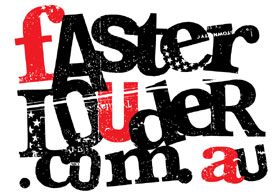 Speaking for myself when coming aboard in January 2009, the focus appeared to reflect a very southern-states centric vibe; that is, a lot of stories from Sydney and Melbourne or even moreso on the international… and not in any great depth. Though perhaps this is a product of the medium and our shrinking attention spans.
Speaking for myself when coming aboard in January 2009, the focus appeared to reflect a very southern-states centric vibe; that is, a lot of stories from Sydney and Melbourne or even moreso on the international… and not in any great depth. Though perhaps this is a product of the medium and our shrinking attention spans.
There’s so much happening locally in Brisbane: we’ve got more than our share of amazing musicians, artists, bands, venues, exhibitions, studios, labels and people in general in this scene. They need to be represented and celebrated. I am working with all interested team members and people in the local industry to increase the coverage of local gigs, news items and encouraging more in-depth articles and photographic assignments in the region.
I’m always happy to make more contacts and hear from more people. The aim is for FL’s Brisbane/Gold Coast pages to be the primary online resource for current, relevant, quality information, writing and photography, that sense of community with a very Brisbane / south-east QLD sensibility. It’s a long way before we’ll be Queensland’s answer to Pitchfork, but we’ve a pretty good place to start!
It’s widely known that FasterLouder contributors operate on a volunteer basis. What effect do you think this has on the quality of the writing and photography that appears on the site?
There was a disgruntled contributor who wrote to me when I first started who complained about not getting certain gigs, and having to purchase CDs and the like themselves in order to contribute. They asked to be removed as a contrib, especially as they had an ethos of journalism being a solo occupation.
I found this quite odd, as after after three years of writing for FL and knowing that if you worked hard, covered a range of gigs and delivered consistently, then the spoils of free CDs to review, interviews and those coveted gigs would come your way. Additionally, media is a team like any other – promoters need media who need writers who need editors and publishers, presenters need cameramen and sound guys, and so forth.
I may be jumping like a CD with a scratch, but this is a team effort and anyone who is keen will be embraced and supported. For some it’s about the gig tickets, for others it’s an opportunity to get a leg up into the ‘paid’ music media through experience and a demonstrable portfolio of work.
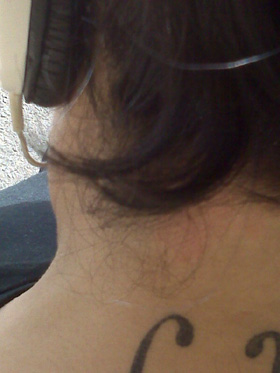 For myself, I didn’t feel so much like a volunteer unless the gigs were free or an $8 local show. $35-$130+ priced tickets (often with a free plus-one) is a nice little sum for a couple of hours writing about what you saw, smelt and heard. Plus there are generally some freebies – such as those where tickets are available gratis, where no review or photos are required – along the way as “thanks” and a show of appreciation. I intend to up the ante in this regard while I’m in the hot seat. I am working to ensure the team feel appreciated in different and measurable ways.
For myself, I didn’t feel so much like a volunteer unless the gigs were free or an $8 local show. $35-$130+ priced tickets (often with a free plus-one) is a nice little sum for a couple of hours writing about what you saw, smelt and heard. Plus there are generally some freebies – such as those where tickets are available gratis, where no review or photos are required – along the way as “thanks” and a show of appreciation. I intend to up the ante in this regard while I’m in the hot seat. I am working to ensure the team feel appreciated in different and measurable ways.
For photographers, it’s a bit different. I feel they’re undervalued in terms of their contribution in promotional material, especially considering the limited time they get to enjoy the performances (or payment when it’s very seldom applicable). Most work extremely hard, spending a great deal of time, money and effort on their chosen profession – or passionate side-project. I can’t imagine how much it used to cost to get a professional-quality set of photos done and out to thousands of people almost immediately.. or even if it was possible, as it is now.
The proliferation of free online commentary, photography and other media content serves to diminish the commercial value of these art forms and skills. It’s tough when Art (capital A as a professional passion) rarely pays much/at all, especially in this business. This is the way the world is unfortunately – sweat the asset. For FL to not be in the red and to pay more staff, the commercialism that’s already present would need to become pervasive and voluminous. I believe this happening would damage the site’s credibility. Just like when your favourite underground, no-commercial-airplay song somehow ends up on a micro car ad…
Now, as to quality. Honestly? Hit and miss.
But that’s all part of people having and refining their own ‘voices’ and skills. Development of talent is something that FL should look to do much more of, and that’s why I’m starting some writing and photography workshops in the near future for contribs – an idea which has been warmly welcome, particularly by the photographers – to help impart the learnings and skill of those who I would call the more “senior”, experienced contributors.
I’d be absolutely ecstatic to have anyone whose talents I help develop at FL land work with radio, or such publications like Rolling Stone, Pitchfork, Q, NME and – my personal favourite and type of voice I aspire to – The Word.
I’m interested in the ‘voice’ that you endeavour to portray in your writing. Can you elaborate on your personal style, and discuss the kind of music writing that turns you on? Proverbially, of course..
Something that’s real, knowledgeable and insightful without snobbery or affectation, has integrity and always strives for an edge – with a great sense of humour. I’ve really gotten into reading The Word in the last 12 months. Rob Fitzpatrick is a gemini wordsmith after my own heart.
Though your career finds you managing srs bsnss operations, you’re effectively wrangling a bunch of hyperactive young’uns in this new role. Which is easier – rational, boring suits, or creative, driven youths – and of the current FL QLD stable, whose work is shining brightest?
Fortunately when reigning from 9-5 corporate battlements I choose my own brave knights to fight the wars. This makes it easy. Plus, they’re in the same realm, so they understand the pressures of competing priorities while being time-poor.
With the rapscallions of FasterLouder, you don’t get to choose, but if I did have to, I’d certainly select the greater majority of the “regulars” – they’re all so motivated, enthused and awesomely talented. As well as being super-nice people! I wish FL was a profitable exercise and they could be paid in more than free gigs and promotional oddities from HQ. It’s fairly evident that the younger contribs don’t quite appreciate how much time goes into this role and maybe don’t know that it’s not my only occupation!
In this world of instant gratification, it’s a challenge to communicate with everyone from all the various media and social-networking sites we’re ‘expected’ to maintain! But that’s okay… they’ll learn in time that quality is what counts…
As you may have gleaned from your interaction with me and what’s happening with the FL site, I encourage active collaboration and participation – that is, empowering those who are working “for” me to take the lead where the opportunities present.
I’m not here to get all the kudos and opportunities myself, I’m here to find them for my team and support them in their development however I can. They’re all doing so well that I’d say the regulars all take their turn to shine. It’s the way it should be.
Alright, I suppose that I should ask you about your musical past, given that you’re now editing a frickin’ music site. This is where you flaunt your fantastic taste, boast about legendary shows witnessed and describe which sounds you’re currently fond of, from the streets of Brisbane to worldwide. Go!
Far out. I could go on for ages… Here’s what I put on my resume for FL:
- Attend 2-3 live music performances per week, generally these are local up and coming bands in small or underground venues. Eg. Hangar, guerilla gigs (eg Art’s building alley), Ric’s, local pubs.
- Travel regularly for significant events – eg. Sigur Ros’ release of Heima and live performance in Melbourne 2007; Air at the Hard Rock Hotel, Las Vegas 2007.

Shan hearts Mogwai
Have attended the following music festivals:
Which sounds I’m currently fond of? Too eclectic to give a comprehensive listing..! Let’s just say I have a very wide range of tastes, jazz (like to sing it a lot) through blues to rockabilly & psycho billy to pure rock, prog to post to post-post, desert, stoner & electronic ambient (still don’t get math so much), LOVE psyche & shoe-gaze indie, oh… man the list just grows!
My favourite band of all time without question is The Beta Band. I cried like those who disintegrated when Elvis or John Lennon were shot on the news of their demise. Seriously. I had to leave work, assume The Caterpillar’s position and lose myself in their sounds for two days. I almost flew to the UK to catch their last show at some summer festival over there. My one true regret… I should have bought those tickets and boarded that plane. Now I console myself with rarities, The Aliens and King Biscuit Time to mix it all up…
Locally? I really dig Idle Cranes and Restream… whatever Tim Steward does always pulls my attention as well… oh and my friend Richie’s rocka/psychobilly band Zebra Rodeo is always a tonne of fun, Richie’s voice is a delight. I don’t have the chance to get out as much as I used to since I’ve taken on this role, which is a shame really… but it’s for a good cause!
Re: other musical dabbling – I’d send you a shot of the band room in our house, but there’s a shit load of equipment, including some tasty vintage items… so… yeah… *puts hand up to the camera lens* “no pictures!”
Finally: got any hot tips for 2009?
Split various chilis length-ways and put them open in an oven tray with your roasting vegetables, cover with oil and roast as normal. The chili spice will infuse through the vegetables – yum!
Oh, and hit the FL QLD home page… there’ll be a hell of a lot more Brisbane content than ever before!!
FasterLouder Queensland is forever searching for enthusiastic young music writers and photographers. If you’d like to gain experience in either of those fields and you live in south-east Queensland, you should email Shan Welham.
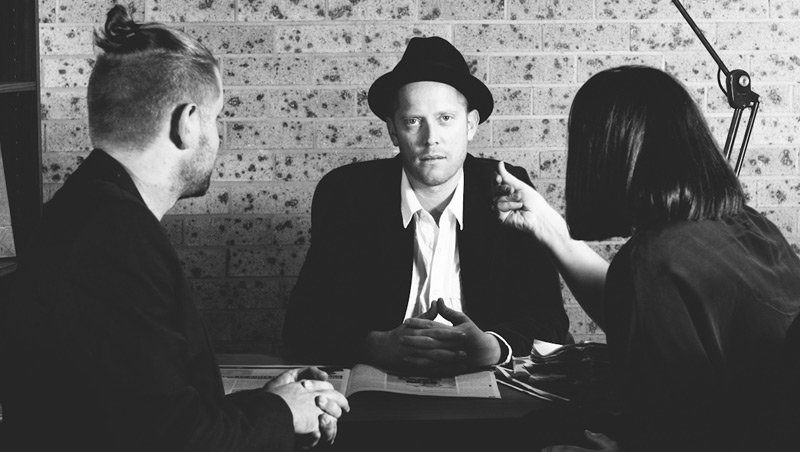
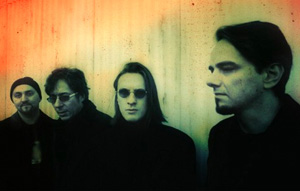 I want to discuss this review from a writing perspective. Some background is required.
I want to discuss this review from a writing perspective. Some background is required.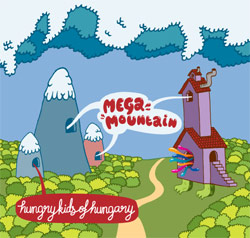 Hungry Kids Of Hungary – Mega Mountain
Hungry Kids Of Hungary – Mega Mountain Shan Welham (aka
Shan Welham (aka  Speaking for myself when coming aboard in January 2009, the focus appeared to reflect a very southern-states centric vibe; that is, a lot of stories from Sydney and Melbourne or even moreso on the international… and not in any great depth. Though perhaps this is a product of the medium and our shrinking attention spans.
Speaking for myself when coming aboard in January 2009, the focus appeared to reflect a very southern-states centric vibe; that is, a lot of stories from Sydney and Melbourne or even moreso on the international… and not in any great depth. Though perhaps this is a product of the medium and our shrinking attention spans. For myself, I didn’t feel so much like a volunteer unless the gigs were free or an $8 local show. $35-$130+ priced tickets (often with a free plus-one) is a nice little sum for a couple of hours writing about what you saw, smelt and heard. Plus there are generally some freebies – such as those where tickets are available gratis, where no review or photos are required – along the way as “thanks” and a show of appreciation. I intend to up the ante in this regard while I’m in the hot seat. I am working to ensure the team feel appreciated in different and measurable ways.
For myself, I didn’t feel so much like a volunteer unless the gigs were free or an $8 local show. $35-$130+ priced tickets (often with a free plus-one) is a nice little sum for a couple of hours writing about what you saw, smelt and heard. Plus there are generally some freebies – such as those where tickets are available gratis, where no review or photos are required – along the way as “thanks” and a show of appreciation. I intend to up the ante in this regard while I’m in the hot seat. I am working to ensure the team feel appreciated in different and measurable ways.